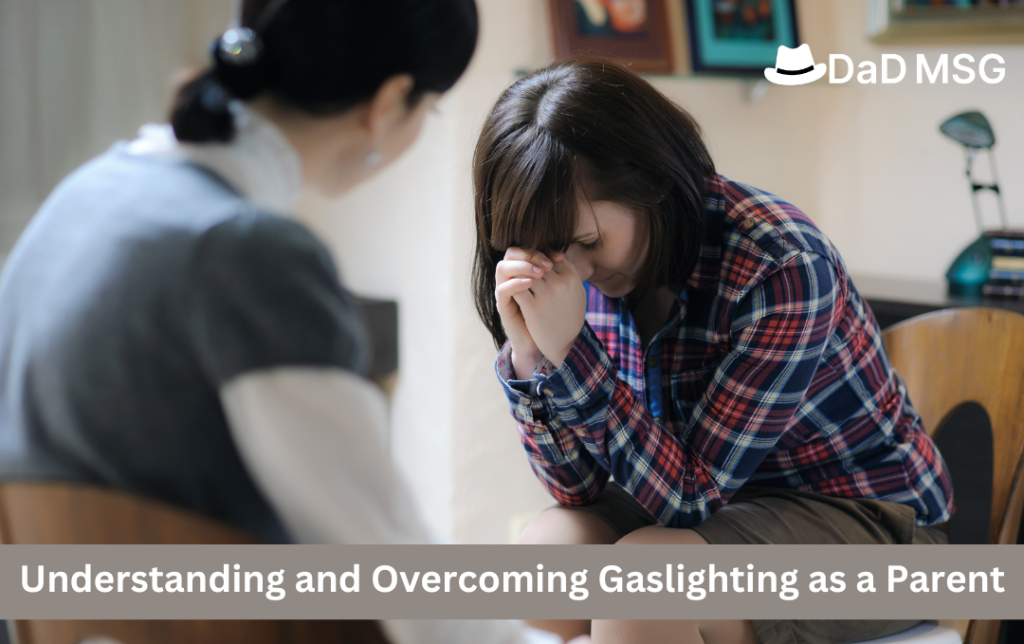Introduction
Gaslighting is a subtle but harmful form of manipulation that can take place in a variety of interactions, including those inside families. Unfortunately, some parents may use gaslighting tactics on their kids, which can lead to severe emotional suffering and long-term effects. This blog will clarify the concept of gaslighting, illustrate parental gaslighting behaviour, examine Indian legal issues related to gaslighting, and provide helpful parenting advice.
Recognizing Gaslighting
In order to obtain power and control over someone, a person may purposefully distort their reality. This is known as gaslighting. Since children frequently look to their parents for emotional support and direction, the effects can be especially detrimental when they occur in parent-child relationships. A youngster who has been gaslighted begins to question their thoughts, feelings, and experiences and loses faith in their own reality.
Examples of Parental Gaslighting
To properly combat gaslighting behaviour, it is imperative to recognise it. The following are a few typical instances of parent gaslighting:
- Dismissing emotions: A parent may minimise or ignore a child’s feelings, leaving them with the impression that they are unimportant or invalid.
- Denying prior events: Gaslighting parents may downplay or deny past incidents, which causes the youngster to doubt their recall and sanity.
- Blaming the child: Gaslighting parents place the blame on their kid and make them feel guilty or in charge of family issues.
- Constant criticism, ridicule, or comparison to siblings can gradually destroy a child’s self-esteem and confidence.
- Gaslighting parents may make contradicting claims or regularly shift their positions, leaving the youngster perplexed and filled with self-doubt.
Is Gaslighting a Crime in India?
Indian law may not specifically identify gaslighting as a crime, but it is important to understand that emotional abuse and manipulation can seriously harm a child’s mental health. Extreme emotional abuse may give rise to legal remedies under laws like the Juvenile Justice (Care and Protection of Children) Act, 2015, or the Protection of Children from Sexual Offences (POCSO) Act, 2012. The possible legal remedies in such circumstances might be clarified by speaking with legal professionals or child welfare organisations.
Strategies for Handling Gaslighting as a Parent
- Learn about gaslighting’s effects on children and how to spot the signs. Recognize the manipulative strategies the gaslighting parent employs.
- Confirm the experiences of your child: Make a setting where your child feels secure to share their emotions and have their experiences validated. Inform them that you understand and respect their feelings.
- Seek assistance: Speak with dependable friends, family members, or support groups who can provide insight and direction. Professional counselling or therapy can also be a huge help.
- Recording incidents Keep a log of instances of gaslighting including the dates, times, and specifics. If you need to involve legal authorities or seek expert assistance, having a written record can be useful.
- Set boundaries: Explain to the gaslighting parent what those boundaries are. Make it clear that you expect respect from others and that you will not put up with their using gaslighting techniques.
- Putting self-care first Put your mental and physical wellbeing first. Take part in activities that will relax, refresh, and help you regain your strength.
Conclusion
A severe problem that can negatively impact a child’s emotional health in parent-child relationships is gaslighting. Parents may take action to safeguard their kids and themselves against the negative impacts of gaslighting by understanding the behaviour, spotting the warning signs, getting help, and putting effective techniques into practise.
Read More:- The Little-Known Story of the ‘Black Taj Mahal’
Never forget that your responsibility as a parent is to show your child love, support, and direction. These guiding principles are violated by gaslighting, which can have negative effects. You may empower yourself and your child to thrive by breaking free from the cycle of gaslighting and building a healthy and supportive environment.
Do not be reluctant to seek professional assistance, such as therapy or counselling, if you believe that you or your child is a victim of emotional abuse or gaslighting. Additionally, contacting groups that focus on child welfare might provide you the tools and direction you need to deal with these difficult circumstances.
Together, let’s work to provide our kids with a loving, accepting environment where their emotions are respected, their experiences are acknowledged, and their emotional health is protected.
Never forget that there is always support accessible and that you are not alone. Set off on a road of healing, empowerment, and a better future for both you and your child by breaking free from the bonds of gaslighting.
This blog serves as a general guide to increase awareness of gaslighting and offer some solutions for handling it as a parent. Gaslighting is a complicated topic. It is advised to speak with experts in mental health or child psychology for customised guidance catered to your scenario.
Read More:-


